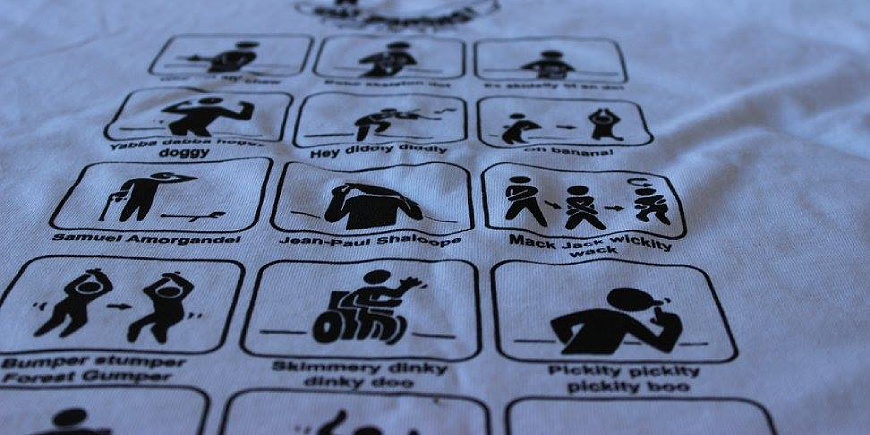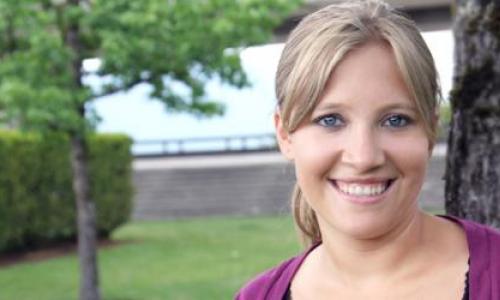
Arriving at Camp
I arrived in Squamish on June 11th and entered a gated property where four large buildings were located. I parked my car in the gravel parking lot and walked into the main building which contained the office, dining hall, and staff room. Upon entering I was bombarded by the faces of staff returning from the previous year and names I knew I would never remember. From here I was lead to another building, the girl’s dorm, and ushered upstairs into a room to meet the four other girls I’d be rooming with for the rest of the summer. Here is where I was faced with my first challenge, presenting myself as an outgoing and adventurous individual, rather than shy and reserved, to my new roommates. Luckily only two had arrived already, so through the magic of caffeine from the large double-double I’d picked up along the way, I was able to talk through my nervousness and start a conversation with my two new acquaintances. By the end of the night I had met all four of my roommates: A nurse on practicum from UVic, the Arts and Crafts programmer on a Co-op from UBC, a returning camp counsellor from the year before, and another new counsellor, like myself, who had travelled all the way from Australia; on top of these people I had met the rest of the counsellors, programmers, and coordinators that made up our thirty-nine person staff. For a relatively shy person, the hardest part was over, or so I thought.
Training
Day one of training started the next day, bright and early at 8:30am in the dining hall. As someone that had never attended camp as a child, I was horrified at the posters of camp songs that lined the wall, most of which I’d have eight days to learn in preparation for the campers arrival. After breakfast we met as a group and received our camp manuals, a 153 page coil-bound book that held the information and proper procedures of what to do when faced with almost any situation imaginable; and we were going to read the entire thing aloud together.
Information included the rules and expectations of staff, as well as specific job outlines for every job position at camp so that everyone understood what exactly they were and weren’t expected to do. After the general introduction came the pages upon pages of procedures that outlined that to do if there was a fire, a missing camper, a camp evacuation, a pool evacuation, a dangerous animal on-site, and any other possible situation that had occurred in the previous years at any of the Easter Seals camps across Canada. I felt well informed about any of the possible situations I would have to deal with over the summer to say the least, but to be realistic I was completely overwhelmed. Over the following seven days of training we intermittently read each and every page of the manual and had a variety of guests speak to us about different aspects of camp.
The most emotional, yet inspirational, part of our training was when we began empathy activities. Because we would be dealing with people that have a variety of challenges over the summer, most of which we would never experience, as part of training we were required to be non-visual via blindfold, non-verbal, and use a wheelchair. For half a day at a time we got to experience what it would be like to be either visually, verbally, or physically impaired. As interesting as it was to wheel yourself around in a wheelchair, have someone guide you up and down stairs and through doorways, or try your hand at sign language, the feeling of being able to move freely and do and say what you want was priceless.
The most physically challenging day came near the end of training when two occupational therapists taught us how to properly lift and transfer campers from wheelchairs to stationary chairs, pool chairs, beds, toilets, tents, canoes, and weight-bearing positions. Depending on the person, a transfer could involve one or two people, as well as a manual or motorized lift, or no equipment at all. After several hours of practicing on each other, we as a group concluded that communication, timing, and planning were essential for a smooth transfer.
Next on the training agenda was learning how to provide personal care such as toileting, bathing, dressing, and feeding, as well as behavioural support. Due to the highly individual nature of these situations, we discussed these topics as a group and return staff shared their stories and advice of what worked well and what didn’t.
Finally near the end of the eight days we began to learn about the disabilities we’d see most frequently at camp, their characteristics, tendencies of people with these diagnoses, as well as their physical traits. Besides having an wide understanding about common disabilities, we learned to administer an Epi-pen incase of an anaphylactic reaction, how to recognize and prevent exhaustion and heat stroke, and how to react when someone is having a seizure.
By the end of the intense training session I felt as if I had all the tools necessary to properly care for and support any child at camp, yet if I ever found myself in a situation where I was unsure what to do, my supervisors would be right behind me to answer any questions and guide me along the way. Now that I had all the information, my next challenge was to adapt and apply it to the campers that would be attending Camp Squamish the following weekend for their first time ever.















